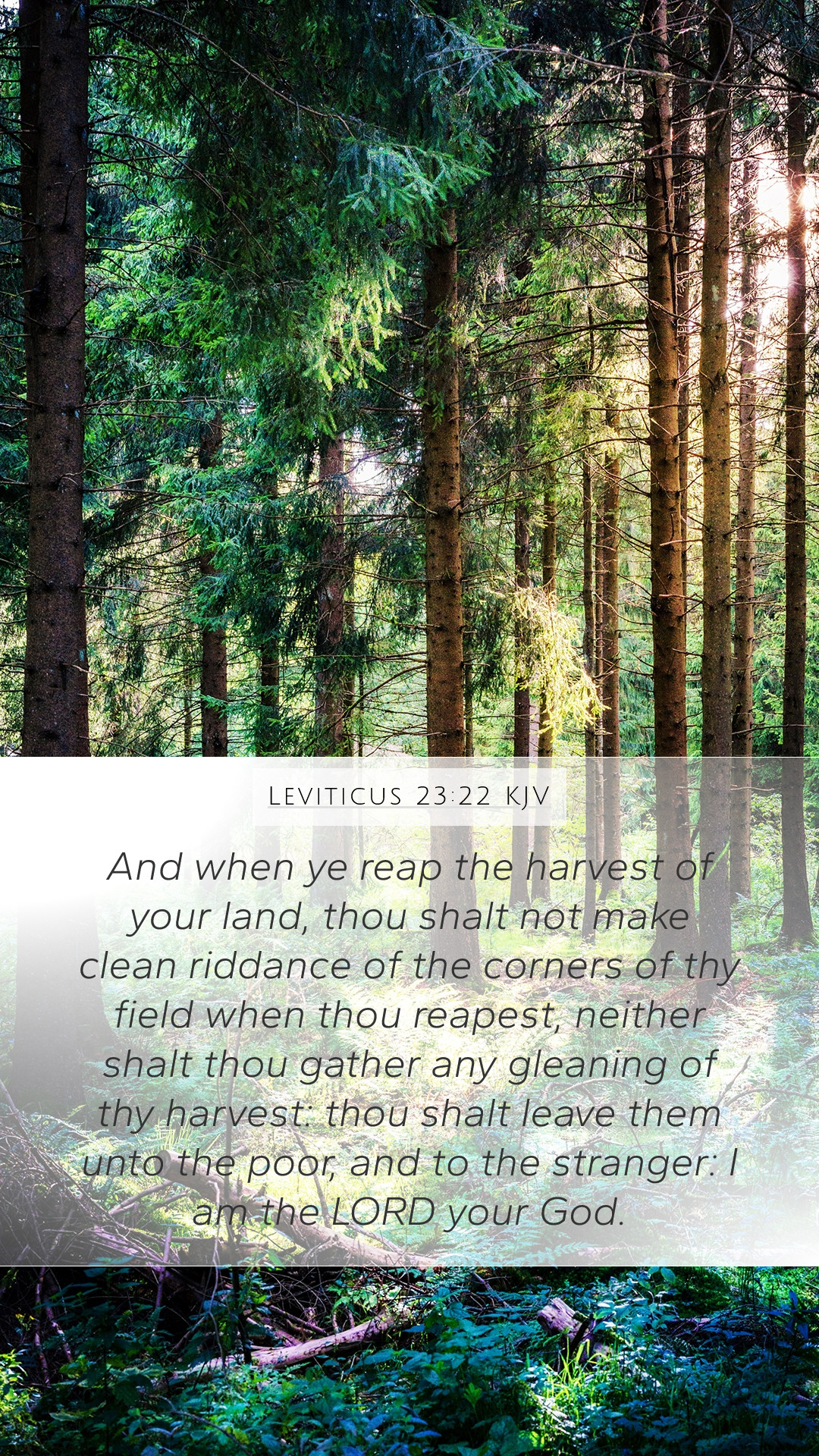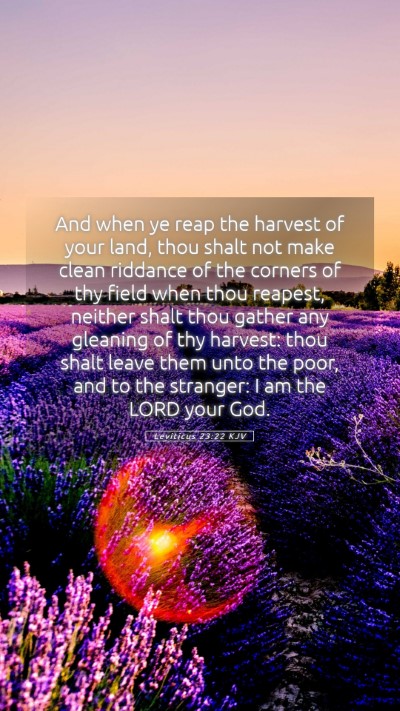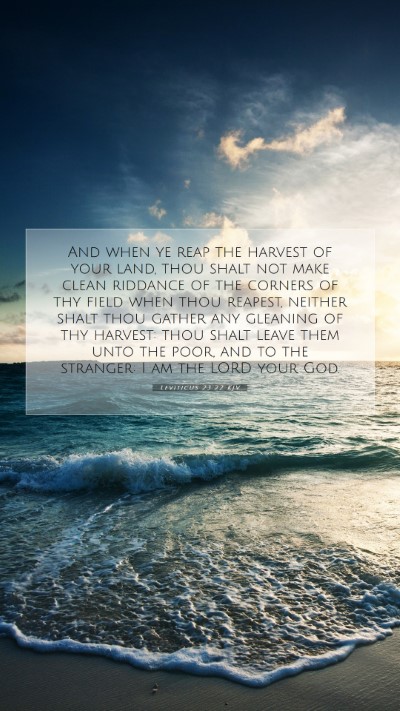Understanding Leviticus 23:22
Leviticus 23:22 states:
“And when you reap the harvest of your land, you shall not wholly reap the corners of your field, nor shall you gather any gleaning from your harvest. You shall leave them for the poor and for the stranger: I am the Lord your God.”
This verse is a profound instruction from God through Moses to the Israelites, encapsulating the themes of generosity and social responsibility.
Summary of Insights from Public Domain Commentaries
In studying Leviticus 23:22, we draw from the insights of notable commentators including Matthew Henry, Albert Barnes, and Adam Clarke who provide a rich understanding of this scripture.
-
Matthew Henry:
Henry emphasizes the moral duty to assist those in need, highlighting that this command demonstrates God's concern for the marginalized such as the poor and strangers. He notes that God's laws are structured to foster compassion and generosity among the Israelites.
-
Albert Barnes:
Barnes expounds on the agricultural practices of the time, explaining that leaving the corners of the fields and the gleanings promotes a spirit of sharing and community. This instruction serves as a reminder that wealth is a gift from God, meant to be shared with those in need.
-
Adam Clarke:
Clarke provides an analysis of the significance of leaving crops for the poor. He points out that this practice symbolizes a deeper spiritual principle – our obligation to care for one another and uphold justice. It’s a form of social outreach rooted in love and mercy, characteristic of the divine nature of God.
Core Themes and Meanings
The verse encapsulates various core themes that enrich our understanding:
- Divine Provision: The instruction acknowledges God as the ultimate provider, encouraging reliance on His abundance.
- Social Responsibility: It urges individuals to look beyond themselves and their immediate families, considering the needs of strangers and the less fortunate.
- Holiness and Obedience: The command to leave portions of the harvest reflects a commitment to live in accordance with God's will, demonstrating holiness in daily acts.
Application of the Verse
This scripture encourages us to reflect on how we can incorporate its principles into our lives today:
- Conduct a self-assessment regarding how much we share with others.
- Engage in community service or support local charities that assist the underprivileged.
- Encourage discussions in Bible study groups about generosity and its biblical foundation.
Cross References
Several biblical passages complement the teachings of Leviticus 23:22:
- Deuteronomy 24:19-21: Further details the gleaning laws and emphasizes caring for the needy.
- Matthew 25:35-40: Jesus teaches about serving the least of these, directly linking to acts of mercy as a service to Him.
- James 1:27: Discusses pure religion as caring for orphans and widows, enhancing social responsibility themes.
Conclusion
Leviticus 23:22 not only serves as an agricultural guideline but as a divine mandate promoting welfare and solidarity among all people. By understanding this scripture, we participate in the rich tapestry of God's call to be compassionate and generous, expressing faith through action.
This exploration can aid Bible study and provide valuable Bible study insights for anyone looking to deepen their understanding of Scripture.


